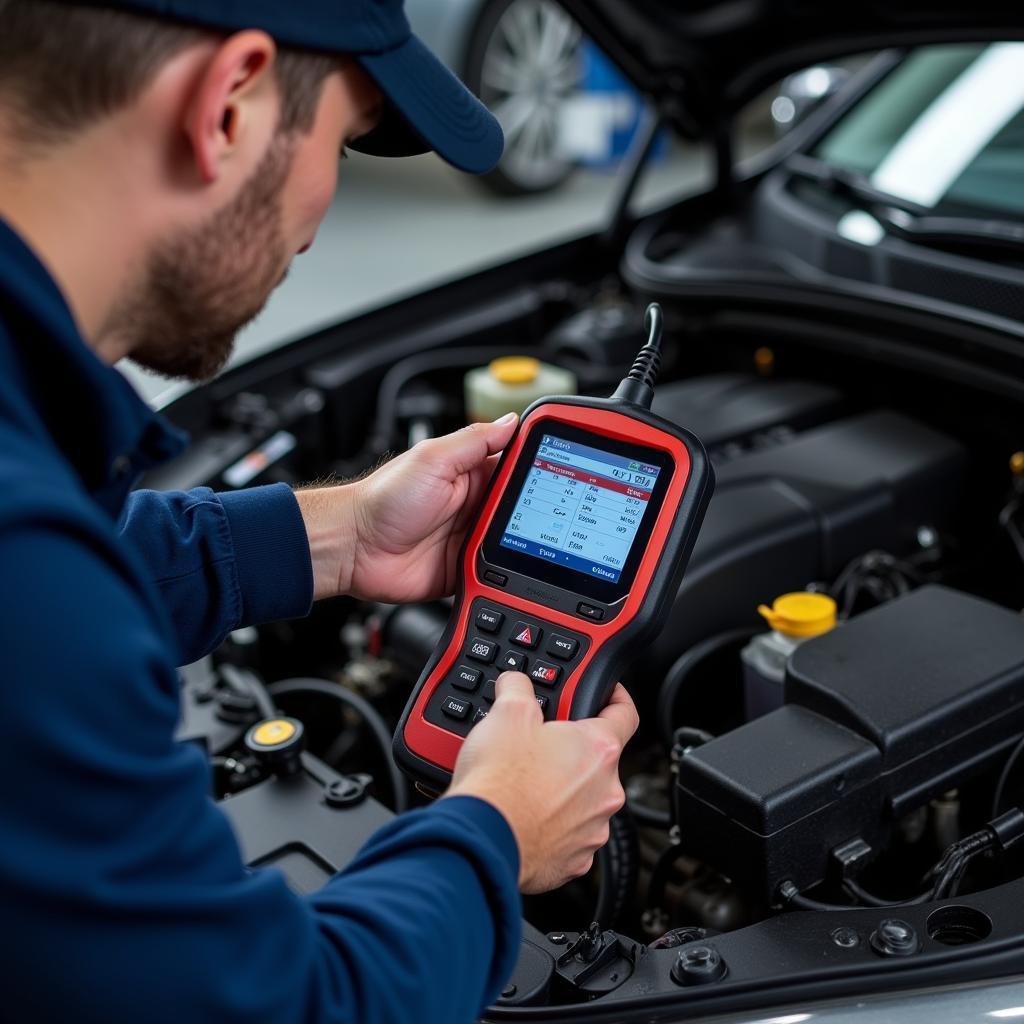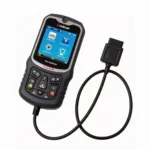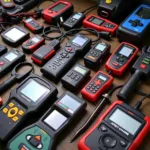Navigating the world of car and truck diagnostic tools can feel overwhelming. With countless options available, each boasting unique features and functionalities, finding the perfect fit for your needs can be a challenge. This comprehensive guide aims to demystify the selection process, equipping you with the knowledge to make an informed decision.
Understanding the Importance of Diagnostic Tools
Modern vehicles are complex machines, relying heavily on intricate electronic systems for optimal performance. When issues arise, pinpointing the root cause requires more than just a visual inspection. This is where car and truck diagnostic tools prove invaluable. These sophisticated devices act as a window into your vehicle’s electronic control unit (ECU), providing valuable insights into:
- Reading and Clearing Diagnostic Trouble Codes (DTCs): Diagnostic tools can retrieve stored DTCs, which are essentially error codes triggered by the vehicle’s onboard computer system when malfunctions occur. By interpreting these codes, you can pinpoint the specific area requiring attention.
- Monitoring Live Data Streams: These tools allow you to monitor real-time data from various sensors throughout the vehicle, such as engine RPM, coolant temperature, and oxygen sensor readings. This live feedback is crucial for diagnosing intermittent issues and verifying repair work.
- Performing Actuator Tests: Diagnostic tools can command specific components, like fuel injectors or solenoids, to activate. This functionality is essential for isolating faulty components and ensuring they’re operating correctly.
Types of Car and Truck Diagnostic Tools
The market offers a diverse range of diagnostic tools, each catering to different needs and budgets.
1. Code Readers: These entry-level devices primarily focus on reading and clearing DTCs. They are budget-friendly options suitable for basic troubleshooting.
2. OBD-II Scanners: A step up from code readers, OBD-II scanners offer a wider range of features, including live data streaming for some parameters. They provide more in-depth diagnostic information and are suitable for DIY enthusiasts and small workshops.
3. Professional-Grade Scan Tools: Designed for professional mechanics and larger repair shops, these tools boast advanced functionalities, such as bi-directional control, comprehensive system coverage, and access to manufacturer-specific data. They represent a significant investment but offer unparalleled diagnostic capabilities.
Factors to Consider When Choosing a Diagnostic Tool
Selecting the right diagnostic tool involves considering several key factors:
1. Vehicle Compatibility: Ensure the tool you choose is compatible with the make, model, and year of your vehicle or the vehicles you intend to service. Some tools specialize in specific vehicle makes, while others offer broader compatibility.
2. Functionality: Determine the level of diagnostic depth you require. Do you need basic code reading and clearing, or are you looking for advanced features like bi-directional control and programming capabilities?
3. User Interface: The tool’s user interface should be intuitive and easy to navigate. Look for features like a clear display, logical menus, and user-friendly software.
4. Software Updates: Regular software updates are crucial for ensuring your diagnostic tool remains compatible with newer vehicle models and incorporates the latest diagnostic protocols.
5. Budget: Diagnostic tools come in a wide price range. Establish a budget early on to narrow down your options.
Maximizing Your Investment: Tips for Effective Diagnostic Tool Use
Investing in a quality car and truck diagnostic tool is a significant step towards streamlined vehicle maintenance. To maximize your investment, consider these essential tips:
- Invest in Training: While many diagnostic tools are user-friendly, taking the time to understand their full capabilities can significantly enhance your diagnostic skills. Online tutorials, workshops, and training courses can provide valuable insights.
- Maintain a Repair Log: Keeping detailed records of DTCs, live data readings, and repair procedures can be invaluable for future diagnostics and tracking vehicle history.
- Stay Updated: The automotive industry is constantly evolving. Regularly update your diagnostic tool’s software to ensure compatibility with the latest vehicle models and access to the most up-to-date information.
Conclusion
Choosing the right car and truck diagnostic tool can empower you to take control of your vehicle’s maintenance, saving you time, money, and frustration in the long run. By carefully considering your needs, researching available options, and prioritizing user-friendliness, you can find the perfect diagnostic companion for your automotive endeavors.
computerised car diagnostic machine are becoming increasingly popular for their ease of use and ability to provide accurate diagnoses.


